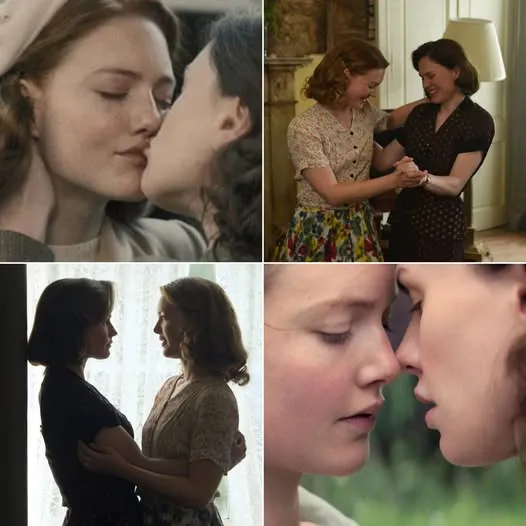Carol (2015)
Set in the conservative, buttoned-up world of 1950s New York, Carol tells the story of an unexpected and transformative romance between two women from very different walks of life. Therese Belivet is a quiet, curious, and somewhat passive young woman working in the toy department of a Manhattan department store. Her days are ordinary and her future unclear, but everything begins to change when she meets Carol Aird, a glamorous, self-assured, and somewhat mysterious older woman shopping for a Christmas gift for her daughter. Carol’s sophistication and presence immediately captivate Therese. After their brief meeting, Carol accidentally leaves behind her gloves, and Therese mails them back to her, sparking a connection that neither of them expected. Carol and Therese begin spending time together. Their conversations are subtle and often loaded with unsaid meaning, and beneath the surface of their growing friendship lies a quiet emotional tension. As their bond grows stronger, we learn that Carol is going through a bitter divorce from her husband, Harge, who is deeply suspicious of Carol’s relationship with her female friend, Abby. He suspects that Carol’s love for women is not a passing phase but something deeper, and he begins to use it against her in a custody battle over their young daughter, Rindy. Meanwhile, Therese is dating a well-meaning but emotionally distant man named Richard, who senses Therese’s disinterest but doesn’t understand its source. Therese feels increasingly distant from him and from the conventional life expected of her. Eventually, Carol invites Therese to join her on a road trip across the country—a spontaneous escape from their constraints, both personal and societal. As they travel through snowy landscapes and small-town hotels, their connection deepens and becomes romantic. In a modest motel room, their relationship finally becomes physical, and both women allow themselves to feel a sense of intimacy and joy they have rarely experienced. The road trip represents a brief but beautiful period of freedom and self-discovery. However, the reality of the outside world soon intrudes. Unknown to Carol, her husband has hired a private investigator who records her and Therese together, collecting evidence to support his claim that Carol is an unfit mother due to her “immoral” behavior. When Carol learns of this betrayal, she is devastated. Fearing she may lose custody of her daughter entirely, she ends the trip and sends Therese home without fully explaining her reasons, leaving Therese heartbroken and confused.
Back in New York, Therese attempts to rebuild her life. She throws herself into photography, her true passion, and slowly begins to assert her independence. Meanwhile, Carol confronts her husband in court. Rather than denying who she is or allowing herself to be blackmailed, Carol bravely admits to her relationship with Therese and refuses to lie to keep full custody. Her honesty costs her dearly—she loses custody of Rindy and is granted only visitation rights—but she gains something more important: a sense of integrity and the ability to live openly. Time passes, and Therese continues to grow as a person and as an artist. She becomes more confident, more self-aware, and more independent than she was before. One day, she receives a letter from Carol, who explains everything and invites Therese to meet her at a restaurant. The invitation is a tentative olive branch, a quiet hope for something new. Therese initially goes to the restaurant but, overwhelmed by doubt and hesitation, walks away before entering. However, she quickly changes her mind and returns. In the film’s final scene, she walks into the restaurant, her eyes scanning the room until they land on Carol, who is seated alone at a table. Their eyes meet across the room. Carol offers a subtle, hopeful smile, and Therese slowly begins to approach. The film ends in silence, but it speaks volumes—it suggests a reconciliation, a renewal of love, and a future that, while uncertain, is theirs to choose.
Carol is a powerful and beautifully crafted story about love, identity, and the cost of being true to oneself. It is not a loud or dramatic film, but one that thrives on quiet moments, stolen glances, and emotional subtlety. Through exquisite performances by Cate Blanchett and Rooney Mara, the film captures the deep yearning and quiet rebellion of two women who fall in love in a time and place that refuses to accept them. What makes Carol especially moving is its refusal to turn its story into tragedy. Though both characters suffer and sacrifice, they also grow and find strength in their love for each other. The ending is open but hopeful, offering the possibility of happiness—not guaranteed, but possible—if they have the courage to pursue it. More than a romance, Carol is a story of liberation. It is about the ways people are confined by society’s expectations, and how love—quiet, patient, and enduring—can be an act of resistance. Carol chooses honesty over convenience. Therese chooses freedom over conformity. And together, they begin to choose each other. The film’s restraint, elegance, and emotional depth make it a landmark in queer cinema and a timeless exploration of love against the odds.

-1739845396-q80.webp)


